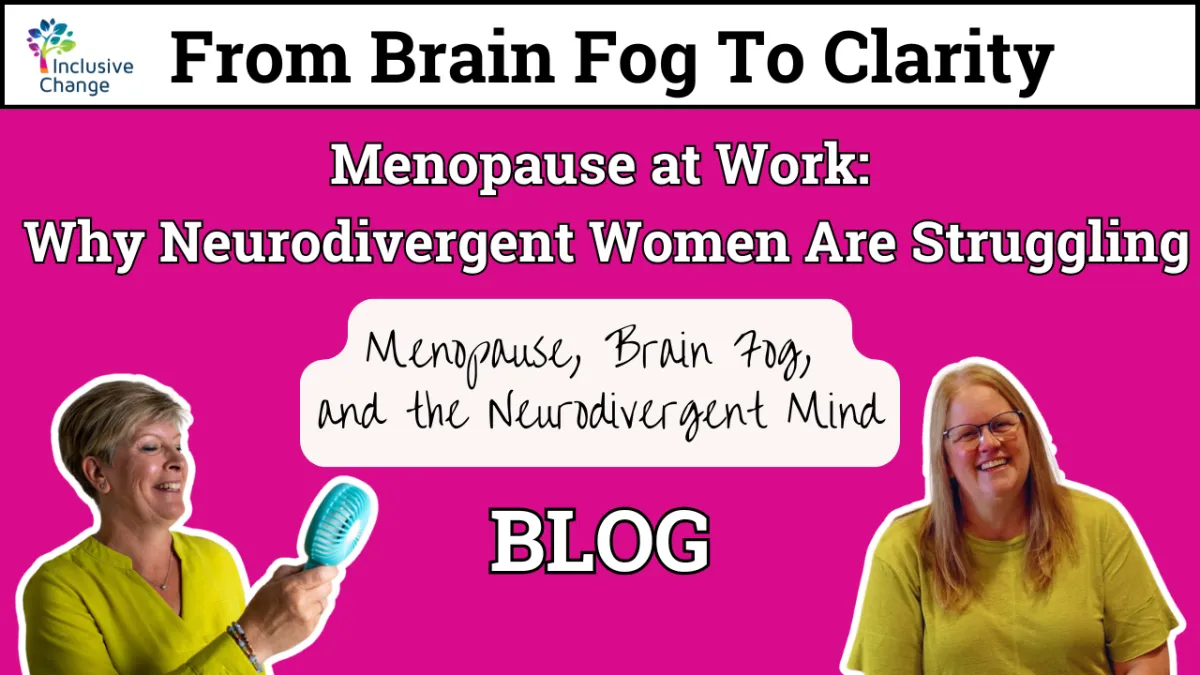
Menopause at Work: Why Neurodivergent Women Are Struggling
“I used to be able to hold it all together.”
It’s a quiet thought many women whisper to themselves between back-to-back meetings, cold tea, and a forgotten task they swear they completed.
For neurodivergent women in perimenopause or menopause, work can go from manageable chaos to complete overwhelm, fast. What used to be a bit of background noise becomes deafening. And the internal spiral begins.
Let’s talk about why.
You’ve Been Masking for Years
Maybe you’ve developed workarounds, scripts, social strategies. You’ve learned how to smile in meetings, nod when you’re lost, and quietly stay late to catch up.
That’s not nothing. That’s decades of invisible labour.
But masking is a load. And menopause lowers your bandwidth for masking. You can’t hold all the balls anymore, because your hormones are tossing them around, and your brain’s trying to juggle fog.
Executive Function Just…Stops Functioning
Neurodivergent brains often struggle with executive function: planning, prioritising, remembering, switching between tasks. Oestrogen helps with all of those. Guess what dips in menopause? Yep.
Suddenly, the calendar is confusing. The inbox is overwhelming. And you’re exhausted before your second meeting of the day.
It’s not laziness. It’s cognitive depletion.
Sensory Sensitivity Goes Up
The office is too loud. Your clothes itch. The lights feel aggressive. Coffee makes your heart race.
These aren’t quirks. They’re your nervous system saying: “I’m overstimulated and no one can see it.”
Menopause often increases sensory sensitivity—especially in neurodivergent women who were already managing it in silence.
Communication Gets Harder
When words vanish mid-sentence or you can’t process someone’s tone, it’s not incompetence. It’s cognitive load. But in the workplace, this can feel like failure.
And because neurodivergent women often internalise blame, we don’t ask for help. We assume we’re the problem.
You’re not. You’re human. You’re hormonal. And you’re doing your best.
What Can You Do?
You don’t need to quit your job or hide in the loo - though we’ve all done it. Here’s what actually helps:
•Block time in your diary for recovery, not just delivery
•Ask for agendas in advance, and give them too
•Use written follow-ups and summaries after meetings
•Wear noise-cancelling headphones when needed
•Advocate for sensory-safe spaces or hybrid working
•Talk to HR or a coach about adjustments, early, not at crisis point
And Here’s the Truth No One Says Out Loud
If you’re struggling to cope, it doesn’t mean you’re in the wrong job.
It might just mean you need new support, updated tools, and spaces that understand how your brain and hormones interact.
That’s exactly why we created the From Brain Fog to Clarity workshop. And beyond that, we offer one-to-one and group coaching to help you navigate work with compassion, not just coping.
Because surviving isn’t enough. You deserve to thrive.
Join us here: